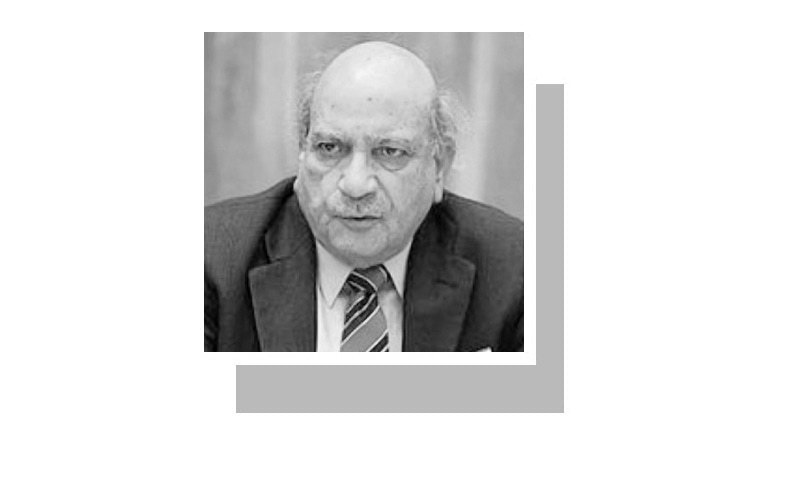THE prime minister took notice the other day of the country’s two festering sores — enforced disappearances and bonded labour. He issued directives for making enforced disappearance a crime and for offenders’ trial in regular courts. He also called for elimination of bonded labour. Both initiatives can only be welcomed.
For over 15 years enforced disappearances have been causing unbearable suffering to the families of victims of this atrocity, besides the denial of basic human rights, torture and violation of personal dignity that is the victims’ lot. After its efforts to secure recovery of missing persons and punishment of culprits during 2007-09 had been frustrated, the Supreme Court asked the government to form a commission to find a way out. Comprising three former high court judges, the commission that was set up in 2010 submitted its report after eight months. The present government would do well if it began by publishing and implementing the report of the commission of retired judges.
A recommendation of the judges’ commission that was accepted led to the creation, under a Ministry of Interior notification, of the Commission of Inquiry on Enforced Disappearances that started working in March 2011. Till the end of last month, it received 5,706 cases and claims to have settled 3,551 of them (this doesn’t mean 3,551 missing persons have rejoined their families). On Dec 31, 2018, this commission still had 2,155 cases pending before it. Unfortunately, fresh complaints of enforced disappearances are still pouring in and disposal is smaller. In November last, the number of fresh cases was 111, while only 57 cases were disposed of. In December, 98 new complaints were received and only 59 cases were decided. That the incidence of enforced disappearance is greater than the cases reported to the CoIoED has never been contested.
Besides slow disposal of cases, the CoIoED has been found wanting otherwise too. Some of the missing persons are found in internment centres or reported to be facing trial. Why can’t families of missing persons be informed as soon as they are detained or sent up for trial, or at the start of proceedings against them?
Enforced disappearances and bonded labour remain festering sores in this country.
The UN Working Group on Enforced Disappearances and domestic opinion have long been demanding the criminalisation of enforced disappearance, ratification of the relevant UN convention, trial of offenders, payment of compensation to victims, and strengthening of the CoIoED in terms of both human and financial resources. All of this should form the government’s agenda.
The previous government had drafted a bill on the subject in 2014 but could not adopt it. This bill came up before a Senate committee recently and we learnt that it has taken the definition of enforced disappearance from the international convention and made it a crime. The government may revise this bill, or a new bill may be drafted. The previous government lacked the strength to overcome internal resistance to its bill. The present government does not have any such disability and it can proceed expeditiously.
For the elimination of bonded labour, which is denounced all over the world as a form of modern-day slavery, the government may begin with a review of what has been happening in this regard since the Supreme Court prohibited the system of advance payments to workers at brick kilns and elsewhere that led to their enslavement, and the enforcement of the Bonded Labour System (Abolition) Act of 1992. It could benefit from ILO surveys that established the existence of bonded labour in all parts of the country and the various forms it assumes.
The first issue civil society organisations faced in this area was that the bonded labourers had neither identity papers nor a permanent residence. It was impossible to establish their legal existence. Several organisations tried to overcome registration authorities’ reluctance to issue national identity cards to bonded workers. They were joined by political parties that needed their votes. The authorities should check whether all bonded workers have received CNICs.
Further, enforcement of the 1992 act heavily depends upon district vigilance committees and this system never took off. Either these committees were not formed or were packed with persons who were themselves exploiting bonded workers.
In 2000, the government took some interest in the matter, thanks largely to the zeal of Omar Asghar Khan, as Gen Musharraf’s labour minister. A revolving fund of Rs100 million was created to undertake projects for bonded workers’ welfare. The fund has been divided among the provinces and its fate is not known. The Sindh government proposed building new villages for the settlement of haris freed of bondage. The Punjab government has been trying to regulate the advance payment system and it has banned employment of children at brick kilns.
The bulk of the bonded labour force is divided into two groups: brick kiln workers that are largely concentrated in Punjab; and farm hands that are concentrated in Sindh. The common factors are that, as debt slaves, they are denied freedom of movement and choice of employment; whole families do labour; women are vulnerable to abuse; and a large number of workers are low-caste Hindus or poor Christians, who are nobody’s concern. In other respects the two groups have different problems that call for different answers.
The brick kiln workers fall in the category of industrial labour. They need to be fully registered, assured of a fair wage, looked after during periods of lay-off, and guaranteed EOBI and social security benefits. The bonded workers in agriculture are skilled farmers and they deserve to be given lands for cultivation.
Moves to eliminate bonded labour have usually failed because of the employers’ political clout. Since most of these employers belong to the opposition parties, the government will reap double benefit from its campaign against bonded labour, provided it can prevent its patronage of the business community from being extended to exploiters of underprivileged labour.
Published in Dawn, February 7th, 2019











































